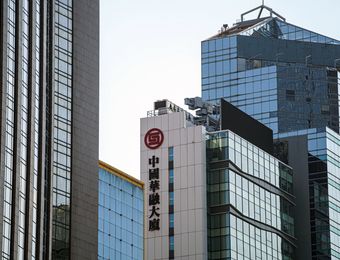
Why China ‘Bad Bank’ Huarong’s Fall Is Big Bad News: QuickTake
Rebecca Choong Wilkins, 18April 2021
 What happens when a company set up by the Chinese government to help clean up toxic debt in the country’s banking system gets into trouble itself? We’re finding out now. Investors were spooked in April after China Huarong Asset Management Co., one of the country’s biggest distressed asset managers, failed to release financial statements in the wake of the execution of its former top executive for bribery. That raised questions about its financial health — and broader worries about whether China would let an institution backed by the central government fail. The ending of a presumed safety net that’s long been priced into Chinese bond values would mean a seismic shift for investors across emerging markets.
What happens when a company set up by the Chinese government to help clean up toxic debt in the country’s banking system gets into trouble itself? We’re finding out now. Investors were spooked in April after China Huarong Asset Management Co., one of the country’s biggest distressed asset managers, failed to release financial statements in the wake of the execution of its former top executive for bribery. That raised questions about its financial health — and broader worries about whether China would let an institution backed by the central government fail. The ending of a presumed safety net that’s long been priced into Chinese bond values would mean a seismic shift for investors across emerging markets.
1. What’s China Huarong?
It’s one of the four state-owned firms set up by China’s government in 1999 to help clean up a banking system riddled with bad debt. The firm was left reeling in 2018 after then-chairman Lai Xiaomin was accused of bribery and ultimately found guilty of receiving 1.79 billion yuan ($281 million) in illicit payments. Under his watch, China Huarong expanded into areas including securities trading, trusts and other investments, deviating from its original mandate of disposing of bad debt. Lai was sentenced to death and executed in January, in an unusually harsh sentence for such a crime.
2. How did it get in trouble?
China Huarong failed to release its 2020 financial reports by a March 31 deadline, which prompted a trading halt in its shares and structured products in Hong Kong. Concerns about the firm’s financial health were sent into overdrive after reports emerged, during weeks of near-silence from officialdom, of a potential restructuring or default. Bondholders, panicked about the prospect of taking a haircut on their investments, confused by conflicting news reports and operating in an information vacuum, spurred wild swings in the firm’s offshore and and local bonds.

